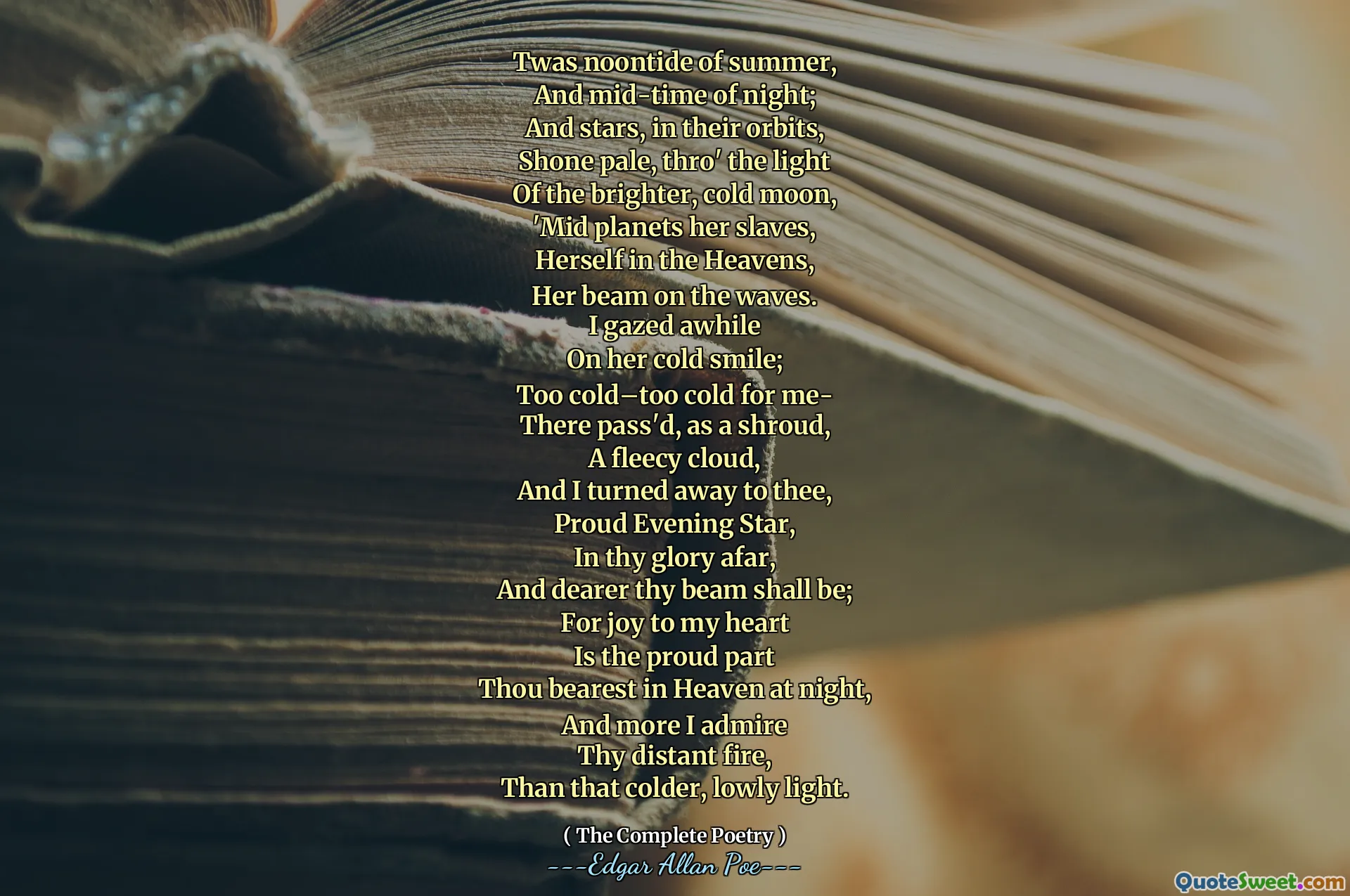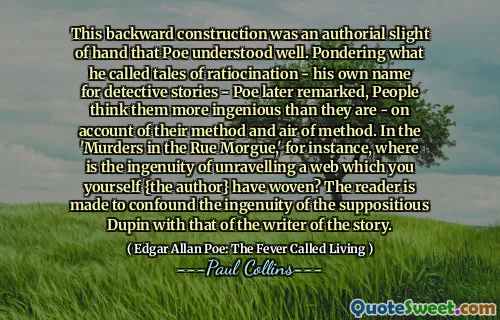
Twas noontide of summer, And mid-time of night; And stars, in their orbits, Shone pale, thro' the light Of the brighter, cold moon, 'Mid planets her slaves, Herself in the Heavens, Her beam on the waves. I gazed awhile On her cold smile; Too cold–too cold for me- There pass'd, as a shroud, A fleecy cloud, And I turned away to thee, Proud Evening Star, In thy glory afar, And dearer thy beam shall be; For joy to my heart Is the proud part Thou bearest in Heaven at night, And more I admire Thy distant fire, Than that colder, lowly light.
The poem captures a contrasting atmosphere of a summer noon intertwined with the chill of night, where the moon shines brightly but coldly among the stars. The speaker reflects on the moon's distant beauty, feeling that its light is too frigid and unwelcoming, akin to a shroud that dulls their spirit. In this moment of contemplation, the speaker prefers the warmth of the evening star, which offers a sense of pride and joy, shining brightly and more warmly than the distant moon.
The imagery conveys a deeper emotional connection to the evening star, as it serves as a symbol of comfort and admiration. The speaker acknowledges that while the moon may captivate others with its brightness, it is the evening star's allure that truly resonates, providing a sense of belonging and warmth that contrasts sharply with the moon's cold shine. This preference highlights the themes of longing, beauty, and the emotional interplay between light and darkness in the night sky.





